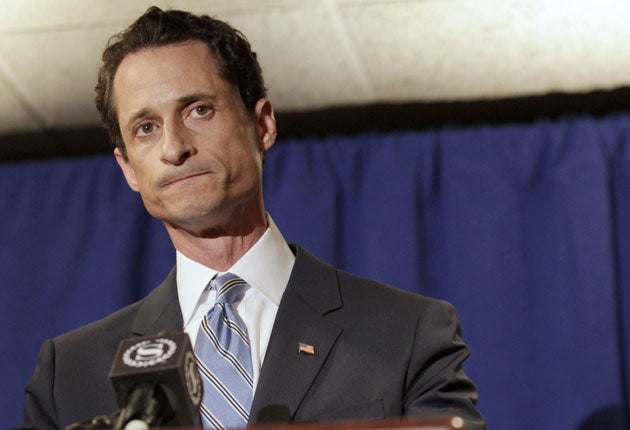Harriet Walker: Even Sophocles couldn't have imagined idiots this tragic

Your support helps us to tell the story
From reproductive rights to climate change to Big Tech, The Independent is on the ground when the story is developing. Whether it's investigating the financials of Elon Musk's pro-Trump PAC or producing our latest documentary, 'The A Word', which shines a light on the American women fighting for reproductive rights, we know how important it is to parse out the facts from the messaging.
At such a critical moment in US history, we need reporters on the ground. Your donation allows us to keep sending journalists to speak to both sides of the story.
The Independent is trusted by Americans across the entire political spectrum. And unlike many other quality news outlets, we choose not to lock Americans out of our reporting and analysis with paywalls. We believe quality journalism should be available to everyone, paid for by those who can afford it.
Your support makes all the difference.Somebody needs to tell the playwrights about an important new twist in modern-day poetics: there is no such thing as a tragic hero any more.
In these days of sexting and dirty direct messaging, he is no longer the totem he once was. The tragic hero was the man we felt a desperate, tugging pain for when he toppled himself unwittingly from a position of honour and nobility. But these days, he fits more easily within the role of the fool – the hamartia, that fatal flaw, and hubris that once resulted in our heartstrings bristling with empathy, now only raises a smirk or gets our backs up. We're exasperated with men who throw away what they have because they are stupid or, worse, careless.
The ritual shaming of men who can't keep their private lives or parts to themselves has become a fact of latter-day existence, as much as muesli or four-wheel-drives. Anthony Weiner's eponymous slip-up, Strauss-Kahn's alleged fumbles with housekeeping, even John Galliano's booze-fuelled rants. These ignoble falls from grace all occurred at the very pinnacle of Fortune's wheel, when these men were either at the top of their game or poised very shortly to reach it. All head-shakingly ridiculous or odious in their own specific ways, all men who were either sparklingly talented or impressively promising. Careers crash down, reputations are besmirched, families are shamed and upset – it isn't far off the ancient tanglings of Oedipus, say, or Titus. Except nobody's eaten their children yet, thank goodness – imagine the PR clear-up from that.
Of course, the foremost characteristic of a tragic hero is a certain bull-headed conviction of one's own righteousness, but the Greeks didn't have to worry about camera phones or clicking the wrong "send" button. If only Oedipus had been on Facebook, that whole sorry mess could have been avoided. Instead of gouging out her eyes, Jocasta might have got away with just making her profile private.
In a digital age where leaders of men are positively encouraged to have feet of clay – we want to see Obama at a ballgame, Cameron at a cookout – a crucial distance, one that commands our respect and deference, is lost. These men are lulled into a false security, supposing that in fact we do want to know the intricacies of their lives, before a lazy mistake singles them out as zeitgeist-ligging bozos with only a tangible greed for followers, be they nubile interns or mere potential voters. But our era's tragic heroes are not king-killers or god-defiers; they are, for want of a more eloquent term, idiots.
Their flaws range from libido to loutishness, and their modus operandi is not flawed so much as fudged. They expect, for some reason, to get away with it, but – and I speak from a practical point of view rather than a moral one (what happens behind the arras is not our concern, after all) – it's even harder to recover from accidental over-sharing than it is to deviate from a blind soothsayer's prophecy.
There is a general consensus that the likes of Anthony Weiner and Galliano are now unfit to do the jobs they had. Undoubtedly they have done wrong, but theirs are not crimes that compromise the way they cut a pattern or run a company. These unpleasantries are peccadilloes and ones that would not have affected their public personae had the details not emerged. Their tragedy is they happened to get caught, or that they got themselves caught, in fact. Instead of Machiavellian tacticians we have blundering Malvolios: people in power have begun to think they are above discovery.
But they are just as fallible as we are when they're logging in to the same social media sites. And, while not tragedy on a Sophoclean scale, it follows the same inevitable but avoidable arc. "Not a man on earth can see a day ahead, groping through the dark," declares Jocasta, before the truth comes out. "Better to live at random, best we can." Good advice, and superbly tweet-able, as it comes in under 140 characters. Those Greeks were a prescient bunch.
Join our commenting forum
Join thought-provoking conversations, follow other Independent readers and see their replies
0Comments